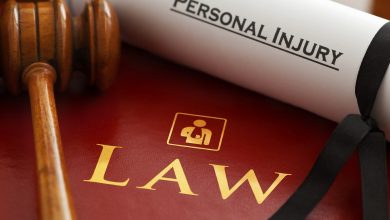What to Expect When Called for Jury Duty

Jury duty is something people rarely think about, but as soon as you receive that dreaded letter from a court, it can put a pit in your stomach. Some people may be nervous, others may be annoyed, and a few others may actually get excited about being part of the justice system. Whichever camp you fall into, you should take each aspect of the process very seriously and comply with the court’s requests. If you are wondering what to expect when called for jury duty, you have come to the right place. Every aspect of the process is described below, along with tips and frequently asked questions.
What is the Jury Act?
The Jury Act can be found in Title 28 of the U.S. Code. This Act states that litigants in federal courts have the right to a trial by jury, and the jury has been randomly selected from a fair cross-section of the district. The Jury Act was put into place to replace the previous system, known as “blue ribbon juries.” In the former system, a jury commissioner would ask for the names of men with recognizable intelligence among a list of “key men” living in the community.
The Jury Act also states that each U.S. District Court must create a list of at least 1,000 people, selected from registered voters in the district. The names are put into what is known as a “jury wheel,” which is cleared and replenished a minimum of once every four years.

First Day of Jury Duty
On the first day of jury duty, the court will select its jurors. You will be told that you must arrive promptly at the time indicated on your summons. This is typically at 8:30 a.m., 9:00 a.m., or 9:30 a.m., and the time can be found at the top of your summons. You should expect to do a lot of waiting throughout the day, which will start as soon as you arrive.
Some have told stories of arriving 45 minutes late to their summons, only to not have the tardiness noticed at all, by anyone in the court. So if you end up getting stuck in traffic, it may not be an issue. Expect to wait at least an hour before your group is called to move out of the waiting room. Once called upon, you can expect to do even more waiting.
If you are not selected for duty, you will most likely be dismissed around 4:30 p.m. If you are selected, the judge will dismiss you no later than 6:00 p.m. in most courts.
How Does the Jury Selection Process Work?
Each attorney that will be trying the case is given time to talk with the potential jurors. This period is called the “voir dire” process. During this time, attorneys will be looking for potential jurors that could be biased against their client. Each side is given ten “strikes,” which they can use to dismiss jurors.
When you enter the courtroom, you take an oath that you will tell the truth in court. You will likely be asked direct questions from an attorney, which you must truthfully answer. If you have strong opinions, you should speak up and make those opinions known if you would rather not serve as a juror. The more you talk, the more likely one side will be to striking you from the jury.
Before meeting with the attorneys, though, you may be asked to fill out a questionnaire prepared by lawyers on both sides. The questionnaire may contain questions such as your opinion of the police force, if you watch crime shows, and if so, if you believe it would make you biased against either the prosecution or the defense.
Once this is completed, each potential juror will be called in one at a time to meet with the attorneys in the courtroom. You may see the defendant with the attorneys when you walk in. After each juror has been called into the room, the judge will be introduced. The judge will go on to explain the type of case that will be tried and what the defendant has been accused of. Then the judge will ask questions, such as if anyone has scheduling conflicts if the trial were to last a certain amount of time.
At this point in the process, you may receive a break for lunch, which will last for about an hour. When the judge proceeds, the floor will be handed over to the attorneys. Each side will receive an hour of time to talk with the potential jurors. The purpose at this point is for the lawyers to determine the jurors they would like to strike for dismissal. A total of 20 people will be struck from the jury.
During this process, known as “voir dire,” the lawyers will ask a variety of questions directly to the potential jurors. For example, a lawyer may describe a hypothetical situation and then address it to one juror in particular to hear his or her response.
Throughout this process, you should always remain completely honest. You would not be the first person to tell a lie in court to get out of jury duty, but you also have no idea how your responses will be interpreted by the other side. You can also be assured that each side has a full background of information on each potential juror, so its best to be true to yourself and serve your civic duty if you end up being selected.
Once the “interview” process is over, everyone will be told to wait for the results. The waiting period may take around an hour or longer before hearing the decisions. Once the decisions have been made, everyone will shuffle back into the courtroom. At this point, the judge will begin reading the names of the 12 individuals who will serve as the jury, along with one alternate.
Those that are selected will then be sworn in, and the judge will give further instructions. You will be told not to form an opinion before all the evidence has been shown and will be told not to discuss the case with anyone else. You will also be told how long to expect the trial to last.

Deciding on a Verdict
The actual court case could take as little as a day to as long as multiple weeks. Once the trial is over, the deliberations with the rest of the jurors will begin, which could take as little as a few hours to as long as multiple days. During this time, you are prohibited from using outside resources such as the internet to arrive at your conclusion.
If you consider evidence that was not presented at trial, it is considered juror misconduct, and the judge may declare a mistrial. In the event of a mistrial, the case would have to be heard a second time with a new jury. If a jury cannot reach an agreement on the verdict, it is considered a hung jury, which also results in a new trial.
Assuming the jury can reach an agreed-upon verdict, the bailiff will be notified, and the jury will rejoin the courtroom to hear a reading of the verdict. Once this happens, your service to the court is over. You will be thanked and dismissed.
Jury Duty FAQ

How will I be contacted for jury duty?
Before a potential juror is summoned, names are drawn from lists of registers voters and drivers. The names that are randomly selected are sent a questionnaire that will determine if they meet the legal requirements for jury duty. In certain courts, your summons and the questionnaire will be mailed out together.
What are the legal qualifications for jury duty?
To qualify for jury duty, you must meet the following requirements:
- You must be a citizen of the United States.
- You must be at least 18 years old.
- Your primary residence must be in the judicial district, and you must have owned the home for at least a year.
- You must be proficient enough in English to fully fill out the juror questionnaire.
- You cannot have any mental or physical condition that would disqualify you.
- A letter from a physician can be presented to show that a person’s disability prevents them from acceptable jury duty. A judge may also disqualify a potential juror if the judge believes someone’s disability would impair them from serving on a jury.
- You must not be facing felony charges which could send you to prison for more than a year.
- You must not have ever been convicted of a felony.
What if I don’t fill out my jury duty questionnaire?
If you receive a questionnaire and choose to ignore it, there can be consequences with the court, including jail time. In many cases, those that do not fill out the questionnaire will be asked to come to court to fill it out in person. For those that do not show up, they can be held in contempt of court and placed in jail until they do fill out the questionnaire.
Who can serve as a juror?
Anyone who meets the above legal requirements and is not a member of one of the following three groups can be eligible to serve as a juror. The three exempt groups are:
- People on active duty with the armed forces
- Members belonging to professional police and fire departments
- Active, full-time public officers in state, local or federal governments
There are 94 federal district courts, and each one has its own policies and procedures for excusing someone from jury duty. Upon individual request, many courts offer excuses from jury duty depending on certain circumstances. If you are older than 70 years old, have served on a jury in the past two years, or are a volunteer firefighter or member of an ambulance crew, you may qualify to be excused. Excuses are solely determined by the court and cannot be appealed.
What if I do not respond to my jury duty summons?
You are legally required to respond to your summons. If you do not respond to a jury summons, the most likely result is that a bench warrant will be issued by the judge. A bench warrant is similar to an arrest warrant. The only difference is that a bench warrant is issued by a judge rather than by the police. When a bench warrant has been issued, the police can arrest you anywhere, at any time. The arrest could happen at work, at school, or even out on a date night.
A bench warrant is a non-emergency warrant, which means that the police will most likely not show up to arrest you. But you run the risk of getting handcuffed and taken to a local police station if you get pulled over for a traffic violation. If this happens and it’s your first time avoiding jury duty, you will most likely be fined. A second offense, though, could send you to prison.
Will I get paid for jury duty?
Yes. A federal juror is paid $50 per day. However, jurors in local courts may be paid significantly less. You may also be reimbursed for transportation and parking expenses. Federal law does not require an employer to pay you during your jury duty, but many employers still do. A salaried employee, for example, may continue to receive their normal salary.
You should check with your human resources department to discover your employer’s policy. You should also ask for what proof your employer requires to show that you served as a juror. The Jury Act also outlaws an employer from coercing, intimidating, or firing an employee due to their jury duty.
What if I have work or vacation scheduled during the dates of service?
Vacation will likely not fall under the “undue hardship or extreme inconvenience” category laid out in the Jury Act. However, you may request a deferral of service, which is granted at the sole discretion of the court. When you receive your qualification questionnaire, you should see specific information about how to request a deferral.
What should I wear to jury duty?
You may dress comfortably as long as your attire is proper for a courthouse. Shorts, tank tops, halter tops, and miniskirts are not allowed in most courts. If you show up with inappropriate clothing, you will be sent home to change your clothes. Many people cite courtrooms as being chilly environments and suggest wearing warmer clothes.
What should I bring with me?
Here is a quick list of items you will be happy you brought with you to court:
- Book to read
- Phone charger
- Lunch and lots of snacks
- A water bottle if you want to avoid the public water fountain
- Cash, as many courthouses only accept cash for things such as the cafeteria and parking
- A backpack, tote, or briefcase to carry everything
What if I am a nursing mother?
A private location will be provided to nursing mothers upon request. Additionally, many courts will excuse you from jury duty if you are a nursing mother and request to be excused.
Why have I never been called for jury duty?
Random chance, combined with legal qualifications, are the only two factors in determining who is called for jury duty. Every judicial district has its own plan for selecting jurors, which includes the random selection across a fair cross-section of the people in the district. Discrimination in the selection process is prohibited. Voter records are the main list that courts use. These lists are sometimes supplemented by lists of people with an active driver’s license.
After serving jury duty, when am I qualified to serve again?
You are qualified to serve as a juror 12 months after the last date you served.
I lost my summons. How can I find the information it contained?
If you are certain that your summons came from a federal court, you can contact your local federal court district to recover this information. You can use the Court Locator to find your local court. If you are not sure what court summoned you, you will have to contact your state or local courts to recover the information.
Can I volunteer for jury duty?
No, you cannot volunteer for jury service.
Can you bring electronics?
It will depend on the court in question. You most likely cannot bring a camera or a radio, but you might be allowed to bring a cell phone, laptop, tablet, etc. There should also be Wi-Fi available, so you will have the opportunity to work while you wait. You are also encouraged to bring a book, as the jury process can include a significant amount of waiting time.
Electronic devices such as a laptop and cell phone are generally permitted when you are in a jury assembly room. However, these devices must be turned off when you enter the courtroom. Cell phones and laptops are generally banned for others attending the court session.



